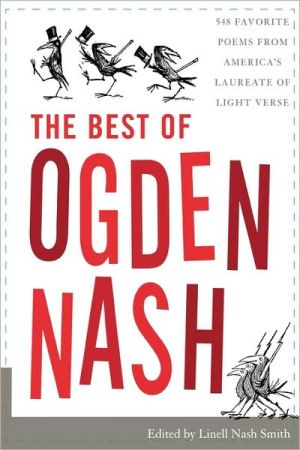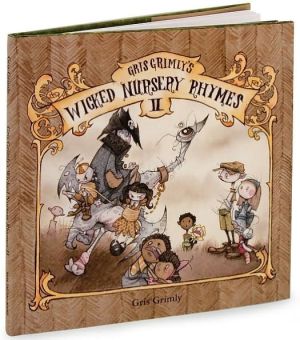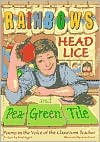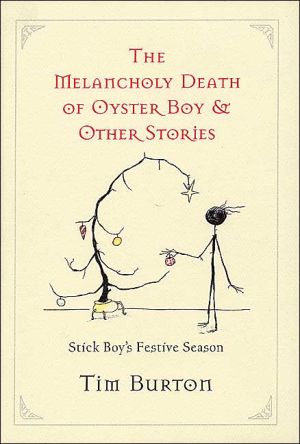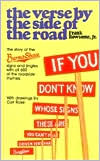Funny
A tour de force, Funny is a masterpiece of poetic, as well as philosophic and comic, invention. It creates a musing world, where the issues are philosophical but the focus is always on people, on our most private ways of balancing our accounts. The poems are psychological; tender and humane, and somehow ruthless. This is poetry that swarms with ideas, that revels in rhythmic intricacy and literary references, but is also clear as a bell, and tells marvelous stories.
Search in google:
A tour de force, Funny is a stunning masterpiece of poetic, as well as philosophic and comic, invention. It creates a musing world, where the issues are philosophical but the focus is always on people, on our most private ways of balancing our accounts. The poems are psychological; tender and humane, and somehow ruthless. This is poetry that swarms with ideas, that revels in rhythmic intricacy and literary references, but is also clear as a bell, and tells marvelous stories. Publishers Weekly Hecht's sophomore effort is one of the most entertaining, and most original, books of the year. Its conceit, barring a few introductory sonnets, is to riff on jokes-become-aphorisms, dismantling assumptions as quickly as she dishes punch lines. "What did the sadist do to the masochist?/ Nothing" generates a brisk, hyperintelligent lyric about the ideas of need and mastery, studded by frequent half-rhymes and internal rhymes. "How many gorillas does it take/ to screw in a lightbulb?" prompts three pages of subtle, wise meditation on human evolution and human error. "Are You Not Glad?" turns a knock-knock joke into smart couplets about regret and love: "Orange you glad? No, I'm not. I ate the berries./ I was hungry. I was young." Switching deftly between the caricatured protagonists of the jokes themselves and more nuanced memories from real lives, Hecht sees how many jokes depend on familiarity and surprise, and how many highlight the disappointments ordinary experience can provide: "One way or another we all become/ the other." The New York-based Hecht (The Next Ancient World), who also writes books of popular philosophy (Doubt: A History), appends a neat 11-page prose essay about the relations between jokes and poems: even without the essay, this book brings the two forms tantalizingly close. (Dec.) Copyright 2005 Reed Business Information.
Sonnet on mirth3One end of an orange cat7Hat trick10Blind love13Gorilla in a darkening room14The sound of those drums17Betty19Family life20Funny ha ha25Prosody on comedy29Horse makes a decision33Song of innocence and experience37The propagation of the species38Are you not glad?42Switch43Cannibal Villanelle45Parrot in the cold46Fear of flying49Funny strange50Sonnet on the ribs of laughter53A little Mumba57Three boats, one afternoon61Chicken pig64Love explained66Story of my life68Naked man in the window69Catch71Lifesavers72Cycling down74Afterword : an essay on the philosophy of funny77
\ Publishers WeeklyHecht's sophomore effort is one of the most entertaining, and most original, books of the year. Its conceit, barring a few introductory sonnets, is to riff on jokes-become-aphorisms, dismantling assumptions as quickly as she dishes punch lines. "What did the sadist do to the masochist?/ Nothing" generates a brisk, hyperintelligent lyric about the ideas of need and mastery, studded by frequent half-rhymes and internal rhymes. "How many gorillas does it take/ to screw in a lightbulb?" prompts three pages of subtle, wise meditation on human evolution and human error. "Are You Not Glad?" turns a knock-knock joke into smart couplets about regret and love: "Orange you glad? No, I'm not. I ate the berries./ I was hungry. I was young." Switching deftly between the caricatured protagonists of the jokes themselves and more nuanced memories from real lives, Hecht sees how many jokes depend on familiarity and surprise, and how many highlight the disappointments ordinary experience can provide: "One way or another we all become/ the other." The New York-based Hecht (The Next Ancient World), who also writes books of popular philosophy (Doubt: A History), appends a neat 11-page prose essay about the relations between jokes and poems: even without the essay, this book brings the two forms tantalizingly close. (Dec.) Copyright 2005 Reed Business Information.\ \



